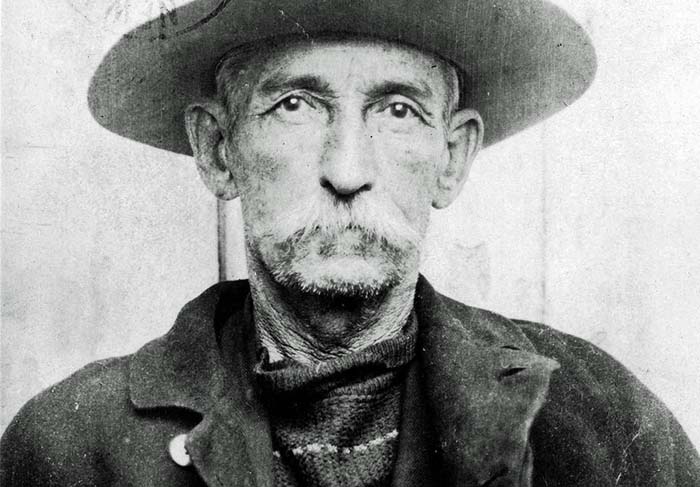
Kamloops British Columbia - British Columbia Day is upon us, a time to relax, enjoy a day in the sun, and imbibe heavily in the name of
provincial pride.
It's also a time to reflect on our heritage, and think back on the famous people and important dates that define British Columbia, characters like George
Vancouver and Matthew Baillie Begbie, the Last Spike at Craigellachie, and the establishment of the 49th Parallel.
But for every name and date that made its way into your social studies textbook, there are dozens more that were lost to history, some particularly
strange.
For every W.A.C. (Wacky) Bennett, there's also an Amor De Cosmos (look it up).
So, just in time for your holiday weekend, we take a look back at one of the most bizarre moments in B.C. history, with nary a mention of the Hudson's Bay
Company.
Ezra Allen "Bill" Miner was in his late fifties when he staged what was long thought to be Canada's first train robbery (the first was actually in
Ontario in 1874), a dramatic heist outside of Mission which netted him and his gang close to $400,000 in gold, cash, and securities.
A small-time thief and stagecoach robber in the U.S. for three decades, Miner was known widely as the Gentleman Bandit, owing to his exceptional politeness
while committing robberies.
And he had a reputation for stealing only from the rich (he never took from passengers or engineers, for example, and on at least one occasion returned money
to someone he had robbed).
That first heist near Mission in 1904 caught the attention of the Canadian Pacific Railway (CP) which in turn dispatched the Pinkerton Agency.
But by then Miner had disappeared, settling in the Interior under a fake name.
Unfortunately, the Australian securities he had stolen were all but impossible to fence without attracting undue attention, and by the spring of 1906 Miner was
in dire need of funds.
He assembled a new gang with the intention of robbing a second CP train outside of Kamloops.
The job was a disaster, netting them only $15 and a bottle of decongestant pills, and with the North-West Mounted Police on their trail Miner and his crew were
quickly surrounded at their camp outside of town.
"The camp was quietly surrounded, and we commenced to close in on them," Const. William Fernie explained in an interview with the
Province.
"A fusillade of shots from the brush showed that they had spotted us and intended to put up a fight."
The shoot out that followed was about as undramatic as they come.
William "Shorty" Dunn, a member of Miner's gang declared, "You'll never take me alive!"
A police officer shot him in the thigh, and he immediately surrendered.
After that brief exchange of gunfire, Miner gave himself up, with his customary good manners.
Dunn is said to have jeered, "It's a damned shame you didn't put that bullet through my head!"
Although he was quickly found guilty and sentenced to life in the New Westminster penitentiary, Miner and his accomplices served less than a year before they
staged a dramatic escape.
"They excavated a hole under the wall near the brick smokestack," a 1907 edition of the Province recounted, "and escaped into another field of
the prison grounds. Although this yard is surrounded by high fencing, the fugitives managed to scale this by means of a ladder, and got clear away into the
surrounding brush."
Miner returned to the U.S., where he continued his criminal career for another six years.
He died in a Georgia state prison in 1913.
Jesse Donaldson.
provisions in Section 29 of the Canadian
Copyright Modernization Act.


